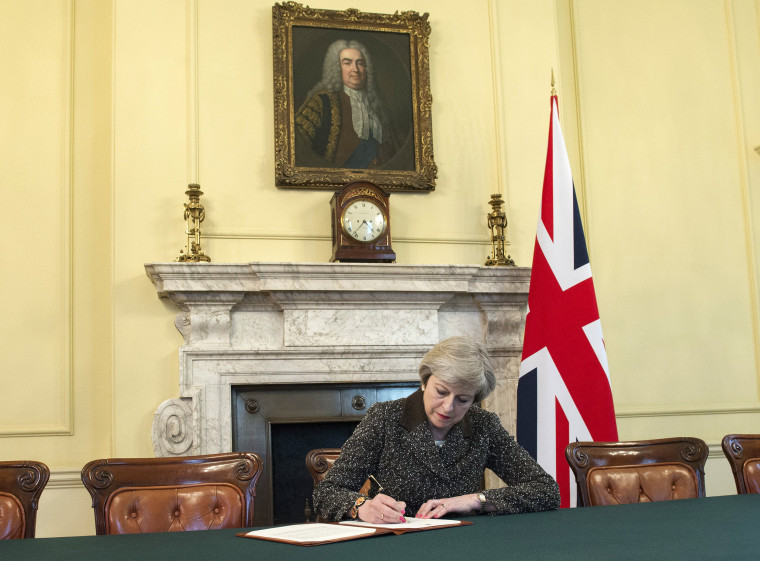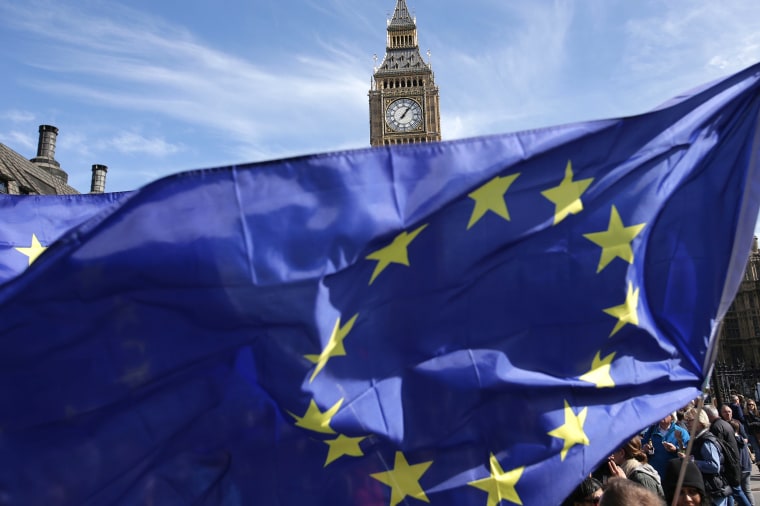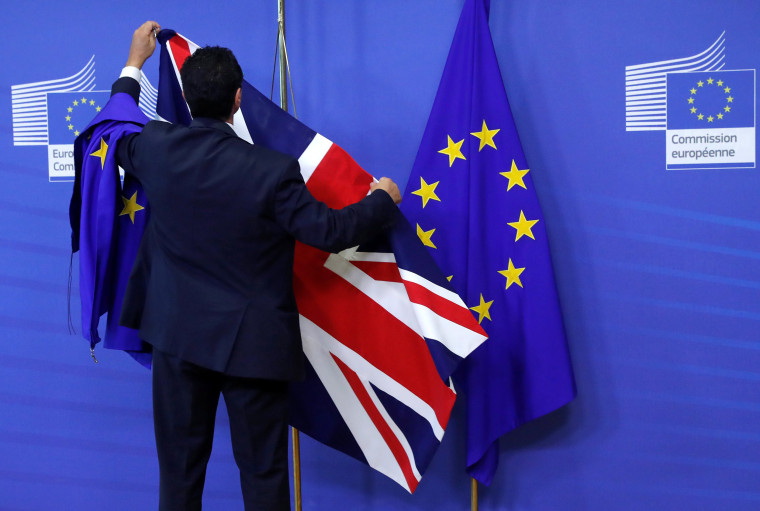LONDON — Britain’s decision last year to leave the European Union has brought down one prime minister, destabilized a second and ravished the value of the pound.
Furthermore, slow economic growth coupled with a stumbling start to official divorce negotiations between Britain and the EU, lead to the Bank of England once again holding interest rates at record lows Thursday.
Given the tempestuous beginning to Britain exiting the EU, there are still powerful people lobbying to stop Brexit, or at the very least change the way the government has approached it until now.
“It’s a reckless person who thinks they can predict what can happen,” said Brendan Donnelly, the head of Federal Trust, a pro-European think tank, and a former Conservative Member of the European Parliament. “I don’t think for a moment that you can assume that Brexit, which has gained in pace, will continue as it has.”

The formal process to leave the EU began in March, when Prime Minster Theresa May sent the official notification to the European Union that Britain plans to leave, known as Article 50.
That triggered a two-year period of negotiations with the 27 other countries in the EU to agree the terms of an exit deal. If they can’t agree, then Britain will leave with no deal.
Until the U.K. election on June 8, there were few political or business leaders willing to challenge the referendum result. That seems to be changing.
Pro-European newspapers write daily about the many crises that Brexit will provoke, from hospital staff shortages to rising food prices and supply risks.
In July, the very man who penned the original Article 50 clause when he was Britain's permanent representative to the EU, was one of 65 prominent business and other leaders in Scotland who signed an open letter calling for a halt to the process. The same week, an opposition Labour Party member of Parliament said that he doubted Brexit will happen.
Brexit itself is in many ways unparalleled. There is no other issue that cuts across both main parties, with some on each side of the aisle holding opposing views.
The Conservatives, who called for the referendum and who are now tasked with delivering Brexit, are still split on the best way to leave the EU — the U.K.'s largest trading partner. Many feel the prime minister's "hard Brexit" position to leave the single market, customs union and other European institutions is too severe.
"It would be [politically] dangerous indeed to persist with this extreme position without a mandate," said Richard Ashworth, a Conservative member of the European Parliament, in his first public comments against May's plans.
“A re-remain decision would not necessarily be met with enthusiasm on the other side of the channel”
"I feel estranged from her if she is pursuing an extreme position, I suspect awful lot of people would feel the same way," he said. "A transitional arrangement would be the most sensible solution. The big questions haven’t been addressed yet and won’t be for some time."
The Conservative's divisions mirror the opposition Labour Party's, who are also split on how Britain should exit the EU. Labour leader Jeremy Corbyn is in direct contradiction to some of his party's leading economists by stating that Britain should leave both the single market and customs union.
Many Labour politicians say they would like to stay in both to ease the effect of leaving on trade, the economy and the National Health Service, among other issues.
"Brexit can’t be delivered in the way it was sold," said Seb Dance, a Labour member of the European Parliament, who is against leaving the EU. "That means when the time comes, a decision will need to be made. Logic would dictate that we stay in at the end of all this."

Formal negotiations between Britain and the EU already began, despite the U.K.'s position on key issues like a financial settlement and the rights of European citizens in Britain still being murky to European negotiators.
British business is similarly hazy on details and is currently pressing the government to clarify its objectives for each sector of the economy, according to Allie Renison, head of EU and trade policy at the business group, the Institute of Directors.
Despite what seems like eternal optimism by those who would like to stay a member of the EU, political analysts say that it’s unlikely.
“It is significantly unlikely that the vote will be overturned,” said Matthew Goodwin, a professor of politics at the University of Kent. “Both of Britain’s two main parties are committed to respecting the referendum result so while the terms of Brexit are contested, the actual vote itself is being respected by both parties. The basic view of the public is that even if they don’t like the referendum result, they should respect it and move on.”
Even if there is a surprise U-turn and Britain decides that it wants to stay in the EU, Europe may not be excited about welcoming the U.K. back into the fold.
“A re-remain decision would not necessarily be met with enthusiasm on the other side of the [English Channel],” wrote Fabian Zuleeg, the chief executive of the European Policy Centre, an independent think tank, in a recent article. “The way the U.K. has conducted these negotiations has burned many bridges and there are precious few allies and friends left. And the longer this approach prevails, the harder will it be to turn the situation around.”
With so much yet to be decided, the only thing that seems certain is that there is a lot of uncertainty still to come.
